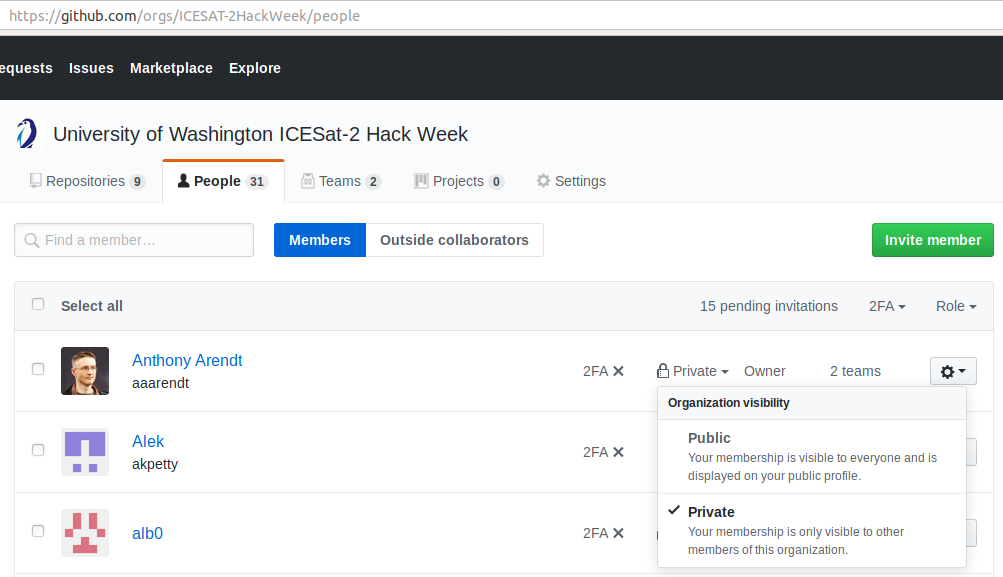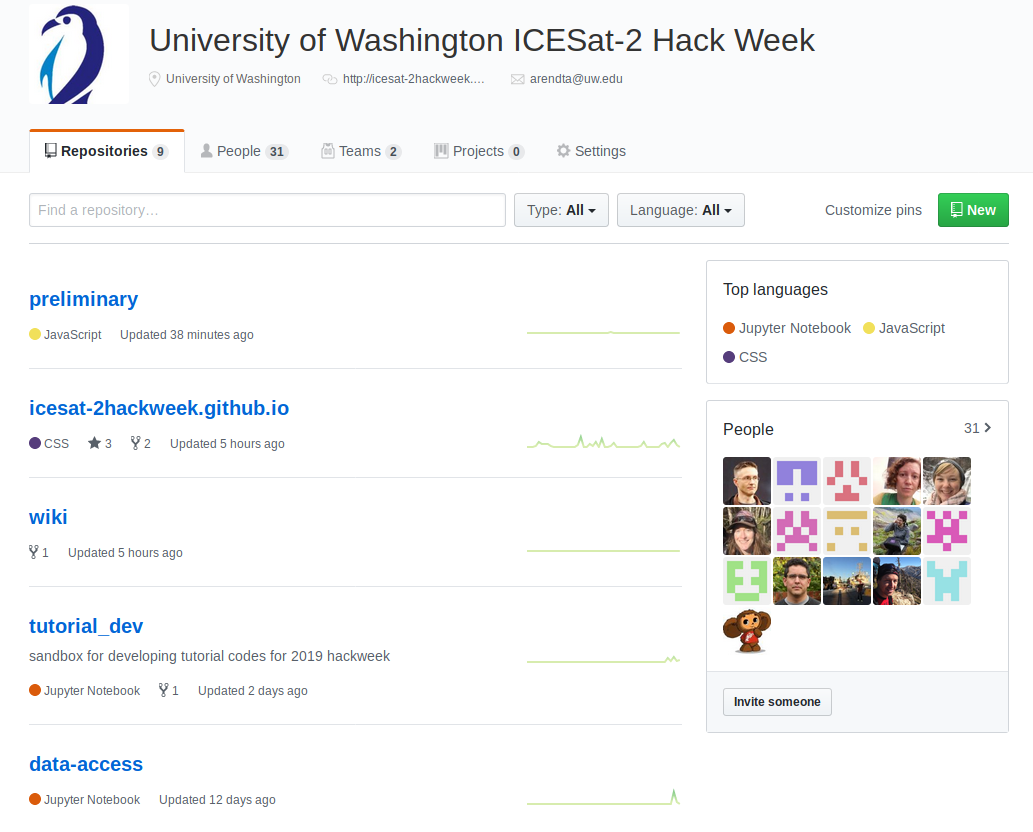What is GitHub?¶
GitHub is a hosting service for Git repositories,
enabling us to share code across teams in a web environment.
Why do I need a GitHub account?¶
There are three reasons you are required to have a GitHub account for the hackweek:
- Your GitHub accounts will give you access to the hackweek cloud computing resources
- All hackweek tutorials will be shared on GitHub
- All project teams will use GitHub to collaborate and work together on their code
Creating a GitHub account¶
Go to GitHub.

Next, enter your email address and click on the green ‘Sing up for GitHub’ button. You will need to answer a few required questions in the following dialogs. Be sure to save your password somewhere safe because you will need it later!
Why are you joining the a Hackweek GitHub Organization?¶
GitHub organizations are a way for teams to manage many repositories specific to a project or workshop in one place. For the hackweek, having an organization creates a central location to access all hackweek content. GitHub organizations also have ‘teams’ that offer simple ways to provide repository access to groups of people, rather than individuals.
We have created a {{ hackweek }} GitHub organization ({{ github_org_url}}). For security purposes you can only join the organization by invitation. Here are the steps:
- If you confirmed participation in the hackweek you will receive an email notification to the email you provided when you signed up for GitHub.
- Follow the link in the email to accept the invitation.
How should I configure my GitHub account?¶
As you’ll learn in the next lesson, we will use the {{ hackweek }} GitHub organization as a way to manage access to our cloud computing resources.
First, navigate to the “People” tab on the {{ hackweek }} GitHub organization ({{ github_org_url }}) and find yourself:

Now, if you see “Private” to the right of your account, you will need to switch this to “Public”:

The steps for doing this are also well documented on this GitHub help page.
How will GitHub repositories be structured?¶
When you click on the “Repositories” tab in the {{ ‘GitHub organization’.format(url=github_org_url) }} you will see a list of names, each of which links to a separate GitHub repository:

Each repository is a container for a specific subset of material for this event. For example, there is a repository for the public-facing website you used to register for this event {{website_url}}. We’ll also create new repositories for each project.